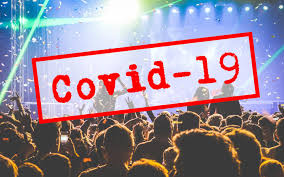What will be the future of independent music after the COVID-19?

Many events were cancelled or postponed in the sport scene - the NBA calendar and the Kentucky Derby horse race for example - and also music concerts and festivals.
Due to the suspension or cancellation of gigs and concerts, main source of income for musicians, those who are not with the 'big guys' can't make barely make any money now.
It is, as we said, partly a matter of context, we all know an independent artist, no matter if it's our friend who has a band in his garage, *cue any old school Blink-182 song* or the girl that sang at your cousin's wedding, many artists try to do a living out of music on their own in an industry whose another source of income, CD sells, has plummeted thanks to the rising of the Streaming services in the late '00s.
But that's something that we seem to forget, and that didn't go through my mind until I came across this Vice article, where we are explained a bit of how the industry has been managed in this sense and what is happening on the Indie artist's side.
Mainly speaking about the US situation, the article does touch in a serious number of topics, including the recent actions taken by the independent music artists, looking to accomplish a way to salvage their niche and way of living.
With no, live events, gigs, and such, there is no way for a starting or independent musician to keep on going with their life as they'd want to, so, many musicians have opted to go to instances such as petitions for Unemployment Benefits sent to the House of Representatives and the Senate of the United States.
Arguing that, "While all workers are suffering right now, musicians, touring workers, DJs, and other gig economy workers are particularly hurt because we are ineligible for unemployment, paid sick leave, or other benefits under our current system..."
Adding, "We pay significant amounts in income tax to the state and federal government, but because most of us are categorized as self-employed, we are unable to access the same benefits as those with single-employer jobs."
Another action taken by the collective of musicians is to demand higher stream royalty rates, explaining that they wanted Spotify to do the following:
-
"Immediately triple the (incredibly low) amount they pay artists per stream, to put urgently needed cash into artists pockets"
-
"Make this change permanent, so that artists can make a living wage and not be left vulnerable or living gig to gig"
-
"Make a $500,000 donation to Sweet Relief's COVID 19 fund, to help support artists who are in urgent need, in part because of Spotify's exploitative pay practices."
The effects of the pandemic have not only hurt the music business in America, obviously, as the second most important music industry in the world, the UK has also been severely affected. As noted by The Independent, whose article starts with:
"For the first time in 89 years, the solid oak doors of Abbey Road Studios have closed. The north London recording studio has been at the reverberating heart of British music since its grand opening..." If that has happened to one of the most famous studios in the world, and property of Universal Music Group since 2013, there's not much hope for those who work are not working with as part of a major label.
Mat Dryhurst, a lecturer who works at the Clive Davis' Institute of Recorded Music, of the New York University, has made interesting remarks about the current context of independent music, claiming that the term "independent music" is "no longer fit for purpose..."
Because "the cultural context it describes, that of an alternative musical economy arising out of the indie rock label system of the 1980s and 1990s, no longer applies in a world where underground musicians and pop stars are all competing for attention on the same publicly traded platforms."
He credited the movements under the Independent music for the counter-cultural movements grew thanks to it, for example, the hippies, Punk rock, hip-hop. But right now, they could end up dividing us more than anything, because of the "era of platform capitalism".
There is still a lot to discuss here, and we are yet to see clear, responsible, and sustainable responses to these problems for the newcomers. Only time will tell, what do you think?